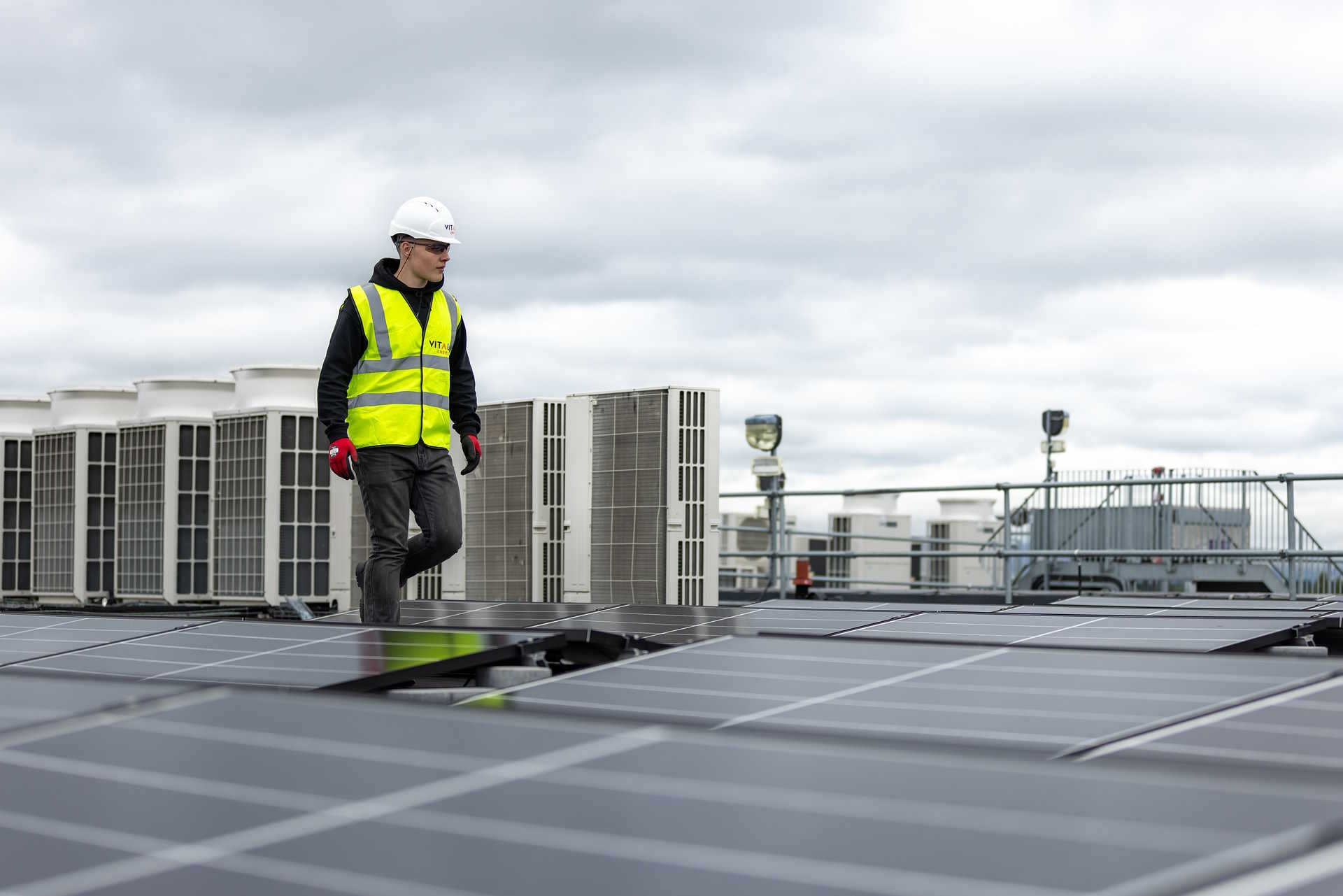Thinking About a Hands-On Green Career? Explore This Guide to Becoming a Solar Panel Installer
Thinking about a hands-on role in the growing green energy sector? This guide explores what it takes to become a solar panel installer—from physically active workdays on rooftops to the skills, training, and potential salary you can expect. With opportunities expanding in states like California and countries like Germany and Australia, solar installation continues to attract those looking for stable, well-paying jobs without the need for a college degree. Explore more about where this career path can lead.

What exactly does a solar panel installer do?
Solar panel installers, also known as solar photovoltaic (PV) installers or solar technicians, are responsible for assembling, installing, and maintaining solar panel systems on rooftops or other structures. Their duties include:
-
Assessing installation sites and planning the layout of solar panels
-
Safely mounting and securing solar modules to roofs or ground-mounted frames
-
Connecting panels to electrical systems and inverters
-
Performing system tests and troubleshooting
-
Conducting regular maintenance and repairs
This physically demanding job requires working outdoors in various weather conditions, often at heights, making it ideal for those who enjoy active work and aren’t afraid of climbing.
What skills and qualifications are needed for solar installer jobs?
To succeed as a solar panel installer, you’ll need a combination of technical knowledge and practical skills. Key qualifications include:
-
High school diploma or equivalent (a college degree is not typically required)
-
Basic understanding of electrical systems and mathematics
-
Physical fitness and comfort working at heights
-
Attention to detail and strong problem-solving abilities
-
Good communication skills for interacting with clients and team members
Many employers provide on-the-job training, but having certifications or completing a solar installer training program can give you an edge in the job market.
How can I get solar installer training?
There are several paths to becoming a trained solar technician:
-
Vocational schools and community colleges: Many institutions offer solar energy technology programs, ranging from short certificates to two-year associate degrees.
-
Apprenticeships: Some companies and unions offer apprenticeship programs that combine on-the-job training with classroom instruction.
-
Online courses and workshops: Organizations like the Solar Energy International (SEI) provide online and in-person training options.
-
Certification programs: The North American Board of Certified Energy Practitioners (NABCEP) offers widely recognized certifications for solar professionals.
-
Manufacturer training: Some solar panel manufacturers provide training on their specific products and installation techniques.
Choose a training path that aligns with your goals and local job market requirements.
What are the job prospects and career growth opportunities?
The solar energy industry is experiencing rapid growth, creating a high demand for skilled installers. According to the U.S. Bureau of Labor Statistics, employment of solar photovoltaic installers is projected to grow 27% from 2021 to 2031, much faster than the average for all occupations.
Career advancement opportunities include:
-
Lead installer or crew supervisor
-
System designer or project manager
-
Sales representative or consultant
-
Quality control specialist
-
Technical trainer or instructor
With experience, you may also have the option to start your own solar installation business.
What unique challenges and rewards come with solar panel installation?
Solar panel installation offers a dynamic and rewarding career for those passionate about renewable energy. Some unique aspects of the job include:
-
Constant learning: The solar industry evolves rapidly, requiring ongoing education to stay current with new technologies and techniques.
-
Physical demands: Installers must be comfortable working on roofs, lifting heavy equipment, and enduring various weather conditions.
-
Problem-solving: Each installation site presents unique challenges, from roof structures to local regulations, requiring adaptability and creative solutions.
-
Environmental impact: Solar installers contribute directly to reducing carbon emissions and promoting sustainable energy use.
-
Job satisfaction: Many installers find fulfillment in helping homeowners and businesses transition to clean energy and reduce their environmental footprint.
What can I expect in terms of salary and benefits?
Solar panel installer salaries can vary depending on experience, location, and company size. Here’s a breakdown of potential earnings and benefits:
| Experience Level | Median Annual Salary | Potential Benefits |
|---|---|---|
| Entry-level | $36,000 - $45,000 | Health insurance, paid time off, retirement plans |
| Mid-level | $45,000 - $60,000 | Additional certifications, performance bonuses |
| Experienced | $60,000 - $80,000+ | Leadership roles, profit-sharing opportunities |
Prices, rates, or cost estimates mentioned in this article are based on the latest available information but may change over time. Independent research is advised before making financial decisions.
Some companies also offer additional perks such as company vehicles, tool allowances, and opportunities for overtime pay during peak seasons.
The solar energy industry continues to grow, offering stable and well-paying jobs for those interested in hands-on work in the renewable energy sector. With the right training and dedication, a career as a solar panel installer can provide both personal satisfaction and professional growth opportunities. As the world transitions to cleaner energy sources, solar technicians play a crucial role in building a sustainable future.




